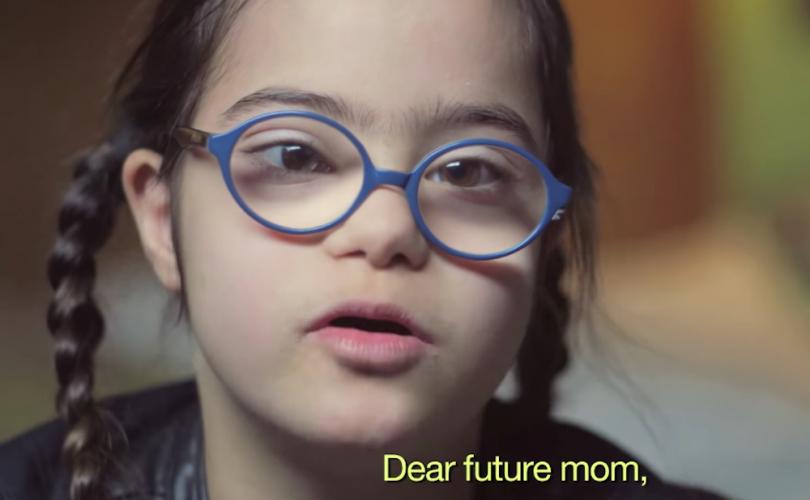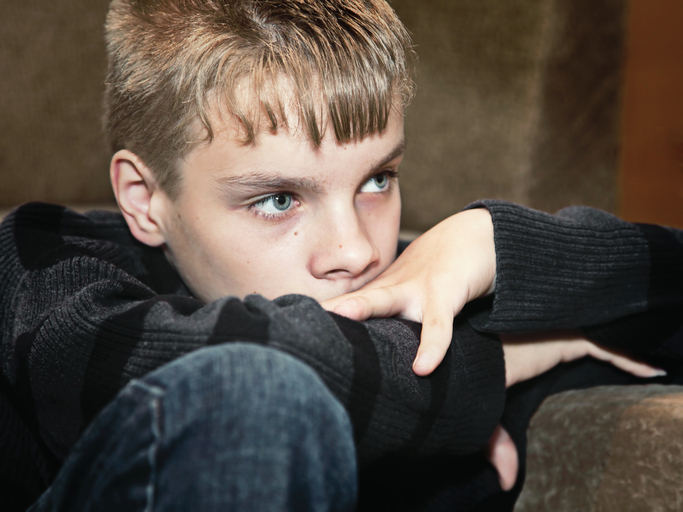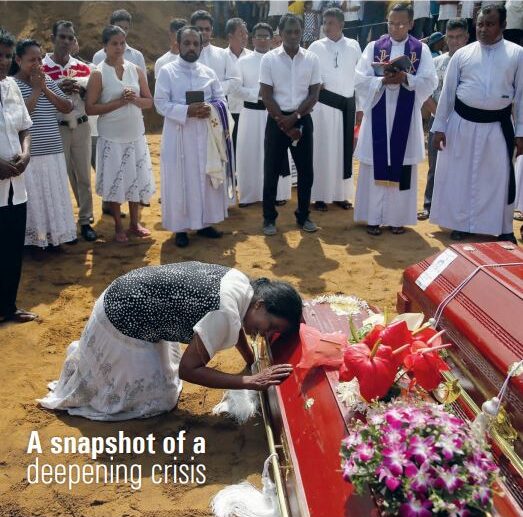
Britain should “turn the taps off” on aid to countries that fail to protect their Christian populations from persecution, a former trade minister has said.
During a Commons debate on Christian persecution, Tory Sir Edward Leigh singled out the Nigerian government and said it should be “held to account” for growing levels of targeting of worshippers and churches in parts of the country.
He added: “How are we helping when we are sending hundreds of millions of pounds to Governments that completely fail to protect their Christian citizens?
Earlier in the debate, shadow Foreign Office minister Fabian Hamilton questioned whether Britain should be beholden to countries that abuse religious groups for trade deals.
Mr Hamilton also asked for confirmation on whether the Prime Minister or Foreign Secretary has ever raised the persecution of Christian minorities within China with the authorities there.
Labour MP Lyn Brown (West Ham) said: “The protection of these rights needs to be at the heart of UK foreign policy.
“We need to do everything possible to ensure that people have the right to pursue their beliefs without fear.

A California state university has this week agreed to revise its policies and pay more than $240,000 after a federal court had found that the university had discriminated against a student pro-life group when it used mandatory student fees to fund only university-favored views.
In 2017, legal group Alliance Defending Freedom (ADF) filed a lawsuit on behalf of the pro-life student group Students for Life, after California State University–San Marcos denied the group access to funding from mandatory student fees that should have been available to all student groups.
According to ADF, CSU-San Marcos has more than 100 student groups but has been discriminatory in distributing funding to those groups. In the 2016-2017 academic year, the university gave the Gender Equity Center and the LGBQTA Pride Center a combined total of $296,498, or 57 times what the other student groups were granted, which was less than $6,000.
The issue came to light in the 2016-207 school year when Students for Life was denied $500 to fund a visiting pro-life speaker, University of North Carolina–Wilmington Professor Mike Adams, who was to give a talk on “Abortion and Human Equality.” The group members had paid the same mandatory student activity fees required of all students.

A court has sanctioned Spanish abortionists for deceptive advertising, putting their public funding at risk.
According to the Association of Christian Attorneys of Spain (Abogados Cristianos), the Court of the Province of Oviedo has ruled that Association of Voluntary Pregnancy Interruption Clinics of Spain (ACAI) made deceptive claims on its website. These included: “Abortion has no consequences”, “There is no risk of infertility at all for having one or more abortions”, “Abortion represents a maturing experience for some women”, and “Those who have an abortion usually have greater self-esteem than those who refuse to end an unwanted pregnancy”.
The court demanded ACAI post on their website the court’s judgement and pay for the cost of the trial. ACAI was ordered to never repeat the false advertising.
In a statement, the Christian attorneys’ guild declared that they “will continue the process so that public funding is withdrawn from the clinics.” Polonia Castellanos, president the guild, greeted the ruling, saying that “justice has been done against an organization that has lied to many women encouraging them to abort as if they were free from serious consequences.” She emphasized that “public aid must be destined to mothers who have few resources and not to abortion employers who only seek money in the suffering of others.”

The UK’s Lord Chancellor, Robert Buckland QC, has said he has “grave doubts” about any weakening of the law against assisted suicide.
Activists have been pushing for the current protections to be removed, but many fear the vulnerable will suffer.
Now Buckland, who is Lord Chancellor and Secretary of State for Justice, has expressed his personal concerns and said the Government has no plans for a review of the law.
Writing to Dr Gordon Macdonald, the CEO of pro-life group Care Not Killing, Mr Buckland said it was not the place of Government policy to dictate a change. “Personally, I have grave doubts about the ability of legislation to be watertight when it comes to the potential for abuse.
“But, as Lord Chancellor, you will understand that, whatever my personal view, I must listen to all sides of the debate on this complex issue.”
Dr Macdonald told the Institute he was “delighted” by the Lord Chancellor’s statement.
He said: “The current law works well. It balances a strong deterrent against abuse whilst allowing a compassionate response to those who are in very distressing and difficult circumstances and experiencing terminal illness.
“We do not believe that doctors should be encouraged to kill their patients or to help them to commit suicide.
“That would be a very retrograde step which would place many vulnerable people at risk of abuse and put pressure on those with terminal and chronic illnesses and on the disabled to end their lives prematurely.”

A Muslim father is being prosecuted for keeping his son off school for months in a row over teaching LGBT+ gender lessons.
Jabar ‘Jay’ Hussain, 51, faces a fine and potentially jail for failing to ensure his nine-year-old went to Parkfield Community School in Birmingham.
He claimed the school’s ‘No Outsiders’ programme was ‘incompatible’ with his rights and Muslim faith.
He alleged the lessons posed a ‘safeguarding risk’ and caused confusion for young pupils about their gender identity and the decision to prosecute him was unlawful and breached his human rights.

The mother of a seven-year-old Belfast boy with Down syndrome has urged Prime Minister Boris Johnson not to introduce abortion in Northern Ireland for babies with the condition.
Nicola Woods (34) is one of more than 1,000 people who have signed an open letter to Mr Johnson as new figures show there were 710 late-term abortions for Down syndrome in England and Wales over the last 10 years.
The letter has been backed by the Don’t Screen Us Out community, a coalition of advocacy groups, who are concerned about the scope of the Northern Ireland’s soon to be enacted abortion regime and the impact on families with Down syndrome children.
Last October an extreme abortion law was imposed on Northern Ireland by MPs at Westminster that is even more permissive than the abortion on demand law in England and Wales.

One of four Nigerian seminarians kidnapped last month has been killed, reportedly by his abductors. The three seminarians kidnapped along with him were released in the weeks following their kidnapping.
“With a very heavy heart, I wish to inform you that our dear son, Michael was murdered by the bandits on a date we cannot confirm. He and the wife of a doctor were arbitrarily separated from the group and killed. The Rector identified the corpse this afternoon,” Bishop Matthew Hassan Kukah of Sokoto, Nigeria, said in a statement.
Michael Nnadi was 18 years old. He had been taken by gunmen from Good Shepherd Seminary in Kaduna, last month. With him were Pius Kanwai, 19; Peter Umenukor, 23; and Stephen Amos, 23. The four seminarians were at the beginning of their philosophy studies.
The gunmen, disguised in military camouflage, broke through the fence surrounding the seminarians’ living quarters and began shooting sporadically. They stole laptops and phones before kidnapping the four young men.

A number of doctors have claimed a service under which adolescents with gender dysphoria are given puberty-suppressing hormone blockers is “unsafe” and must be immediately stopped, but their concerns were suppressed.
The treatment is provided in Ireland by flying in two clinicians from an NHS trust in London to run clinics at Crumlin Children’s Hospital.
The Irish Independent, however, has reported at least three doctors who work with gender disorders expressed grave concerns over the service provided by the Tavistock and Portman NHS Foundation Trust at Crumlin.
The concerns over standards of clinical care and governance were raised at a meeting of doctors and hospital officials in Crumlin last March.
These included that children had been started on hormone treatment when they did not appear to be suitable.
However, the issues raised and calls by the doctors for the service to be “terminated with immediate effect” were omitted from draft minutes of the meeting.

A court in Belgium has acquitted three doctors accused of unlawfully poisoning a woman whose life they helped to end.
Tine Nys, 38, died surrounded by her family on 27 April 2010.
In the landmark case, her sisters and prosecutors had argued she wanted to die because of a failed relationship – not an “incurable disorder” as required by Belgium’s euthanasia law.
But after hours of deliberations the jury in Ghent cleared the doctors, prompting applause in the courtroom.
Those acquitted early on Friday were Joris Van Hove, the doctor who administered the lethal injection, Nys’s former doctor Frank D and psychiatrist Lieve Thienpont.
Euthanasia and assisted suicide were made legal under strict conditions in Belgium in 2002.
Since then doctors have faced legal proceedings before, but none of the cases had reached a courtroom until now.

Bangladesh Christian leaders have expressed “deep concern” about an attack on Rohingya Christian families at the Kutupalong Maga refugee camp in Bangladesh last week. The next day, 25 Christian families (70 people) were moved to a UNHCR transit camp.
“The attack is a very sad episode,” said Nirmol Rozario, president of the Bangladesh Christian Association, speaking to AsiaNews. Although the exact reasons for the incident are not yet established, one of the Christian refugees, Saiful Islam Peter, said that intolerance against “the Christian faith” was the cause. The attack has been blamed on members of the Arakan Rohingya Salvation Army (ARSA), who “destroyed our homes and church,” Peter said.
According to the victims, 12 people were wounded in the attack, eight requiring hospitalisation.
In addition to the 25 Christian families in Kutupalong, 444 Hindu families have also relocated to the Ukhia camp.
Caritas Bangladesh is present in the camps, working for everyone, whether they are Christian, Hindu or Muslim, a Caritas official said. The Catholic charity doesn’t consider the religion of the people they serve. Each camp has a person in charge of conflict resolution who, with the police, tries to settle issues.